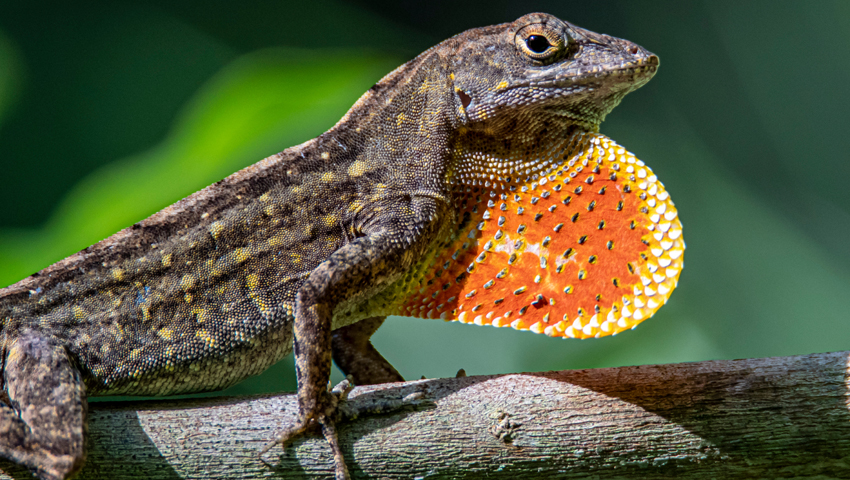RESEARCH by US scientists provides what they call “unprecedented support for evolution-to-ecology connections in nature”.
The idea that changing environmental conditions drive adaptive evolution is a pillar of evolutionary ecology. But, the opposite—that adaptive evolution alters ecological processes—has received far less attention, and yet is critical for eco-evolutionary dynamics.
The scientists assessed the ecological impact of divergent values in a key adaptive trait using 16 populations of the brown anole lizard (Anolis sagrei).
Mirroring natural variation, they established islands with short- or long-limbed lizards at both low and high densities. They then monitored changes in lower trophic levels, finding that on islands with a high density of short-limbed lizards, web-spider densities decreased and plants grew more via an indirect positive effect, likely through an herbivore-mediated trophic cascade.
The researchers say that “”Rapid adaptation in response to environmental change is well documented, but we lack an understanding of how evolved trait values affect ecological processes in natural systems—that is, evolution-to-ecology connections.
“Using islands as replicated experimental units, we demonstrate that adaptive variation in lizard limb length dramatically affects ecosystem structure—specifically, short-limbed lizards enhance plant growth.
“Our findings aid in closing an otherwise well-supported eco-evolutionary feedback loop wherein lizard limb length adaptively responds to vegetation structure and plant growth is influenced by lizard limb length mediated through food web interactions.
